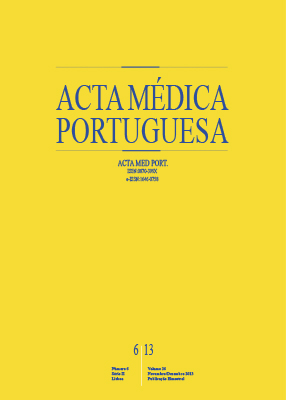Atypical Femoral Fractures Associated with Long-Term Treatment with Bisphosphonates
DOI:
https://doi.org/10.20344/amp.4323Abstract
Introduction: Long-term treatment with bisphosphonates has been associated to atypical femoral fractures whose features are now clearly defined.Clinical Cases: We present two cases of female patients under bisphosphonate treatment for over 10 years who were admitted to our institution for subtrochanteric and femoral shaft fractures after low-energy trauma. They presented, respectively, a transverse and a short oblique femoral fracture, with thickening of the lateral cortex. They underwent surgical treatment obtaining good functional and imaging result.
Discussion: These cases fulfill the established criteria for atypical femoral fracture, thereby illustrating a serious adverse event of long-term treatment with bisphosphonates. Such relationship has still not been clearly established by scientific evidence. However, its effectiveness in preventing osteoporotic fractures is well proven.
Conclusion: The atypical femoral fractures are possibly a serious adverse effect of the long-term treatment with bisphosphonates. Scientific evidence still supports its use, however, the physician must be aware of these events and closely follow-up these patients.
Downloads
Downloads
Published
How to Cite
Issue
Section
License
All the articles published in the AMP are open access and comply with the requirements of funding agencies or academic institutions. The AMP is governed by the terms of the Creative Commons ‘Attribution – Non-Commercial Use - (CC-BY-NC)’ license, regarding the use by third parties.
It is the author’s responsibility to obtain approval for the reproduction of figures, tables, etc. from other publications.
Upon acceptance of an article for publication, the authors will be asked to complete the ICMJE “Copyright Liability and Copyright Sharing Statement “(http://www.actamedicaportuguesa.com/info/AMP-NormasPublicacao.pdf) and the “Declaration of Potential Conflicts of Interest” (http:// www.icmje.org/conflicts-of-interest). An e-mail will be sent to the corresponding author to acknowledge receipt of the manuscript.
After publication, the authors are authorised to make their articles available in repositories of their institutions of origin, as long as they always mention where they were published and according to the Creative Commons license.









